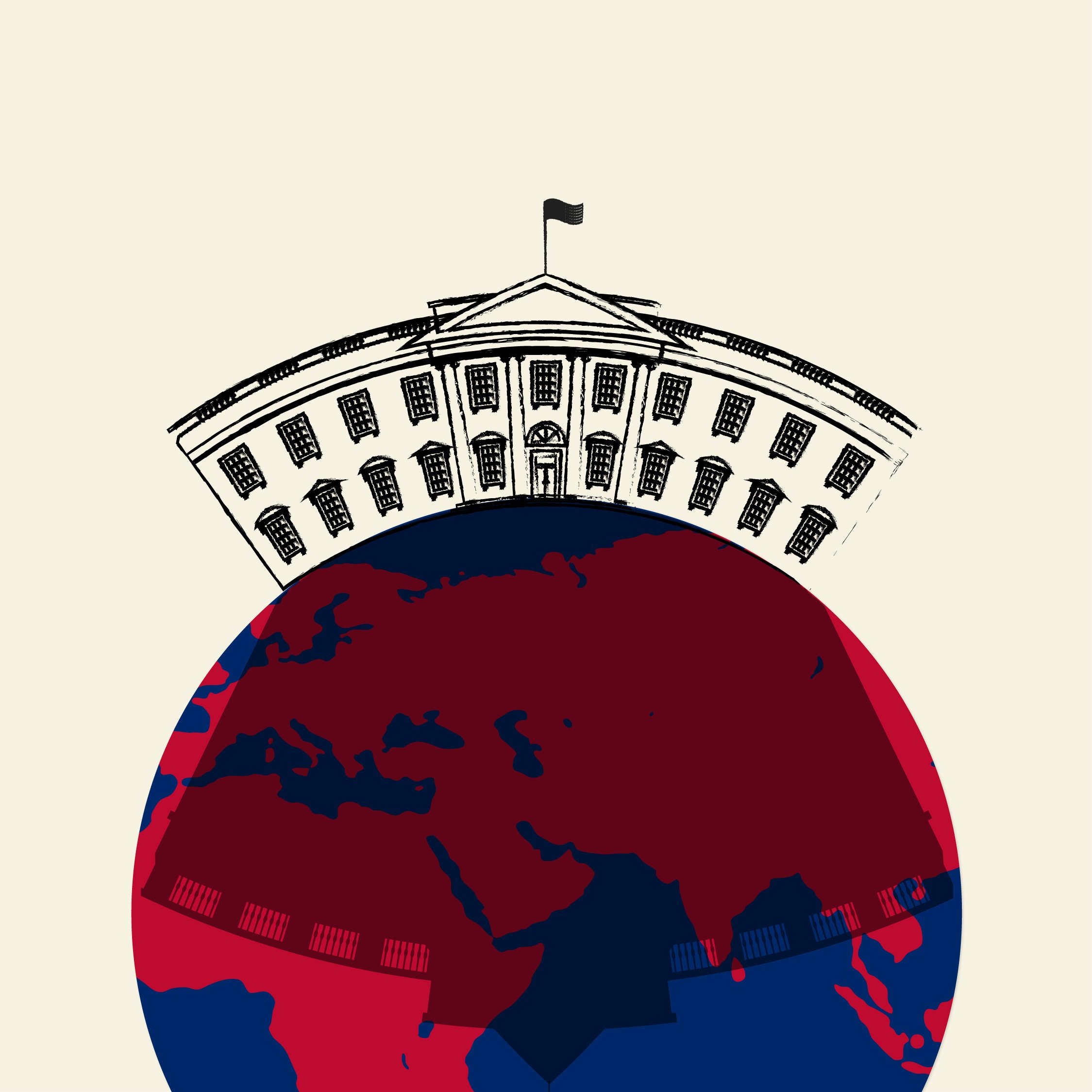Erdoğan’s Great Replacement Theory
The natalist policies of Turkey's ruling party have sharply curtailed reproductive rights.
JANUARY 25, 2023
In recent years, weddings of prosperous citizens in Turkey have sometimes featured a surprise guest: Turkish President Recep Tayyip Erdoğan. He likes to give advice to newlyweds about how many children to have. “One is awkward; two is competitive; with three, there is balance; four means prosperity,” he told one couple. (Erdoğan himself has four children.) “Birth control is treason,” he said to another, accusing birth control advocates of attempting to “dry out our breed.”
For the past half-decade, Erdoğan and his conservative AK Party have ruled Turkey by decree in coalition with far-right parties, and his rule has been marked by a gradual shift toward more restrictive, natalist policies. Officially, abortion is legal in Turkey through the first 10 weeks of pregnancy. But for most Turkish women, the practice might as well already be illegal.
Several women told me about their abortion experiences in Turkey’s health care system. (I’ve changed their names to protect their identities.) Elif, a school therapist, discovered her pregnancy in 2015 when the embryo was 4 weeks old. She phoned 10 clinics, and three said they performed abortions. She told only a few friends about the procedure: “It would be like drinking alcohol or committing adultery for a woman with a headscarf to have an abortion,” she recalled thinking. When she went to the clinic with her husband, “they looked at us weirdly and copied our identity cards and wedding certificate, which was demeaning.” She had to act quickly; even if a few days passed from ten weeks, the private clinic would refuse to perform the abortion, a friend who’d gone through the same experience told her.
Hale, a 37-year-old literature teacher from Izmir, had an abortion in August 2021. The abortion took place in a private clinic, where a friend assisted her. Hale didn’t know she had to bring her husband for his signature, which is a legal requirement for abortion.
Ayşe, a textile worker and pious Muslim, realized she was pregnant two years ago. No state hospital in Istanbul would agree to perform an abortion for her. Several private hospitals refused, too, while others asked for astronomical prices. In the private hospital where Ayşe had had her first child, her doctor, a woman, told her: “I fear God. I can’t take the life given by Allah.”
As the state has developed new technologies to track women’s pregnancies, abortions have also become harder to obtain.
Since 2008, the Turkish government has used a surveillance system called GEBLIZ (an acronym for the Pregnancy, Newborn and Post-Partum Monitoring System) to record and track all pregnant women who visit maternity services. Under the GEBLIZ system, health personnel visit pregnant women’s homes to track the development of their babies. In several cases, women have been outed to their families as pregnant by official visits from GEBLIZ staff, who knock on the door and announce that they have “come over to track the status of the pregnant woman in the house.” The Turkish newspaper Radikal interviewed a health professional in Istanbul who told the story of a 19-year-old. “She was five weeks pregnant and decided to have an abortion three weeks later,” the health professional said. “Because the system put her under surveillance, a midwife and a doctor went to the woman’s house in Istanbul’s Gaziosmanpaşa neighborhood. The health workers told the father who opened the door that in his house there was a pregnant woman who had to be tracked. Neither the mother nor the father knew about their daughter’s pregnancy.”
In 2012, four years after the debut of GEBLIZ, the Ministry of Health added a “privacy button” that would, in theory, stop personnel from visiting homes. Still, anyone with access to the GEBLIZ system, even hospital administrative staff who are not doctors, would be able to view whether a woman in the system was pregnant or not, regardless of whether she has chosen the privacy option, when the system launched. In a 2014 article about GEBLIZ, Seda Saluk, an assistant professor of women’s and gender studies at the University of Michigan, tells the story of a friend who underwent a blood test, learned she was pregnant and immediately received a phone call from her family doctor for pregnancy tracking. “She panicked because she wasn’t married and worked diligently to remove the pregnancy status from the records, eventually succeeding because she’s a health worker,” Saluk writes. “But not everyone has the same privilege.” Saluk’s new book project, Monitored Reproduction: Surveillance and Care in Turkey, examines reproductive surveillance in Turkey and demonstrates “how seemingly revolutionary data-driven technologies provide authoritarian regimes with novel tools to extend their control into people’s intimate lives.”
As the state has developed new technologies to track women’s pregnancies, abortions have also become harder to obtain. A 2016 study by the anti-domestic violence group Mor Çatı found that among 184 state hospitals, only nine performed abortions. A study from the same year found that out of 431 state hospitals with maternity services in Turkey, just 34 performed the procedure. In 2020, the same study found that the number had decreased to 10. For 1.5 million women living in the east Black Sea and west Marmara regions of Turkey, there are no hospitals that offer abortions. According to the same 2020 study, in Istanbul, where a quarter of Turkey’s population resides, there are no state hospitals that provide abortions, even within the legal limit of ten weeks. Three-fourths of all abortions in Turkey are done in private clinics; in one such clinic, the procedure costs 4500 TL ($240), more than half of the minimum wage. Insurance doesn’t cover the procedures in private clinics.
The Turkish government has worked to make access more difficult, too. In 2010, the government introduced the Family Surgeon system, which forces women to go to local clinics before specialized clinics for female care. A number of Mother-Child Health and Family Planning Centers subsequently closed, making it harder for women to directly reach surgeons who can perform abortions. The system also removed abortion services from primary care.
Existing abortion laws are strictly implemented. According to Article 100 of Turkey’s penal code, instituted in 1983, women who abort pregnancies after the 10th week can be punished with up to one year in jail; surgeons who perform those procedures can face between two and four years. In 2013, a professor who directed the maternity services of a health center and the head surgeon of a private hospital were charged with performing illegal abortions on women whose pregnancies exceeded the 10-week limit. They were sentenced to 15 and 13 years in prison, respectively.
In some cases, the authorities have clearly tried to make an example of anyone involved in abortions after the 10th week, imposing sentences with unprecedented severity. In April 2007, for example, police raided a clinic that had been performing abortions in the northwestern city of Bursa. They confiscated documents that listed the names of doctors who had referred patients to the clinic. They also tapped the doctor’s phone and recorded his conversations with colleagues. Eight days after the raid, the doctor, age 57, killed himself in his surgery. That year, eight doctors who had sent patients to his clinic were prosecuted. The doctor’s secretary and two anesthesiologists were each charged with “being a member of a crime organization” and received 20-month sentences, as well as 30-month sentences for performing abortions beyond the 10-week limit. The judge multiplied each punishment by the number of abortions their office had performed. In 2017, the anesthesiologists appealed their prison sentences. The Supreme Court upheld the convictions, sending a clear message that those assisting in abortions would continue to receive the same severe punishments.
When Irmak Saraç, an Istanbul-based gynecologist, was studying at Hacettepe University in Ankara in the 1990s, providing abortion services was not a problem. “When a woman had an unwanted pregnancy, she could easily get an abortion in a state hospital for free,” Saraç recalled. After Erdoğan made anti-abortion sentiment part of his platform, couples who came to her for abortion did so in fear: “There is this perception that it’s become illegal.” Both hospitals and private clinics have stopped seeing women, she said: “Some refuse patients; those who don’t ask for extra money.”
The website for Women on Waves, a Dutch organization that distributes abortion pills, features instructions for self-abortion. The site is banned in Turkey. Akşam, a pro-government newspaper, warned against the group in 2013, framing it as an illegal organization. “Everyone has to play it by ear and ask someone they know or trust,” Saraç said. “Sometimes women’s organizations propose a way, but there is no Turkish equivalent of American solidarity organizations that offer interstate travel.” *
Erdoğan is a pious Muslim; his religious faith is central to his politics. Yet among monotheistic religions, Islam has one of the most liberal theologies on reproductive rights. Hanafi, the oldest of the four traditional Sunni schools of Islamic Law, allows abortions until the fourth month of pregnancy if the woman has a valid reason, including poverty. About 90% of Turkish citizens follow the teachings of the Hanafi school, which believes that “the breathing of the soul” into a fetus takes place on the 120th day after conception. Islam privileges the woman over the fetus, an approach rooted in the conception-themed Quran sura, Al-Mu'minun (“The Believers”). The sura’s finale, according to Islamic scholars, shows how a fetus must undergo various stages before it can be named “a new creation.”
Over the centuries, Islam’s approach to abortions has informed European thought. The Persian doctor Avicenna’s The Canon of Medicine was translated from Arabic to Latin around 1150; its abortion techniques were studied by Western surgeons throughout the Middle Ages. Razi, a Muslim physician from Baghdad who lived from 865 to 925, advised women to powerfully jump backward nine times to abort pregnancies, while al-Ghazali’s The Revival of the Religious Sciences recommended azil (“withdrawal”) as the proper birth control method.
Anti-abortion culture entered Turkey in the mid-19th century via the influence of bureaucrats who idolized the Code Napoléon, the French civil code of 1804. The Ottoman sultan issued a law criminalizing abortions. Islamic scholars said the law was sinful and violated Shariah, but they were ignored. Demographic concerns may have been the driving force behind the law. Ottomans living in cities bore few children. According to the 1885 census, the birthrate in Istanbul was 1.35; it remained behind preindustrial European levels into the 20th century. Most Ottoman women were home-schooled, spent their early youth in the family house, married late in life and bore their last babies in their mid-30s. The deaths of millions of Ottoman citizens in World War I left the new Republic of Turkey, born in 1923, short of a robust population.
In a 1922 speech, Kemal Atatürk, the founder of modern Turkey, said his administration aimed to reduce death rates and increase the new nation’s population. In 1926, Atatürk adopted the Codice Zanardelli, the Italian penal code of 1889, banning all abortions and punishing the mother and those assisting her. In a departure from Shariah, the secular law referred to the fetus as a “child” for the first time. Abortion was placed under the umbrella of “crimes against individuals.” In 1936, it became a crime “against the unity and the health of the race.”
It was only in 1983, under the reign of a military junta, that abortions up to 10 weeks were legalized. A report by the World Health Organization showed that between 1983 and 2008, abortion-related deaths in Turkey fell by six times and shrunk to 2% of all female deaths. When Erdoğan, who has been ruling Turkey as its president since 2014, first rose to power in 2002, deaths from botched abortions had largely vanished from Turkey’s public life.
Erdoğan’s party, the AK Party, advocated EU values in its first years. It received backing from Tony Blair, Gerhard Schröder and other social democratic leaders, and showed little anti-abortion fervor. Yet some members of the party had their own version of family values.
In his 2003 manifesto, Conservative Democracy, the AKP ideologue and politician Yalçın Akdoğan wrote, “Conservatism believes it needs to protect tradition and family.” One of the 10 principles underlying the conservative democratic movement, in Akdoğan’s view, was that “the rights of babies, even when they are inside the mother’s belly, should be protected.”
The demand for higher birthrates was also the outcome of centralized planning efforts of the Turkish state. Since 1963, the Turkish government has used five-year development plans to set its fundamental principles. 2007’s Ninth Five-Year Development Plan revealed concerns about an aging population: Turkey’s population growth rate fell from 1.41% in 2000 to 1.26% in 2005, the report warned. Because of the fall in birthrates, the report predicted, the percentage of children in the total population would continue to decrease, while the percentage of the elderly would rise.
The findings had an immediate effect on the government’s rhetoric. On March 8, 2008, International Women’s Day, Erdoğan asked female supporters in the Anatolian town of Uşak to have three children. “Those people want to root out Turks,” he said, scolding defenders of birth control and small families. “Have at least three children, so our young population doesn’t decrease.” Soon this became a mantra for Erdoğan. In 2012, his rhetoric hardened. “I see abortion as murder,” Erdoğan said during the International Conference on Population and Development.
Erdoğan’s attempt to criminalize abortions may have another use: cracking down on minorities. In the eyes of the Turkish state, birth control has often concerned “increasing the numbers of the privileged classes,” said Saraç, the gynecologist. In 1996, a leaked report issued by Turkey’s National Security Council showed the Turkish state’s worries about the Kurdish population reaching 40% of Turkey’s general population in 2010, and 50% in 2015. The report urged the government to take “urgent action.” One recommendation was the punishment of Kurdish families who had more than three children and the support of those with fewer children. Otherwise, the National Security Council warned, the Kurdish population would exceed the Turkish population in 2025 and reach the parliamentary majority necessary to change the constitution. Nowadays, according to Sedef Erkmen — a political scientist who wrote a book on the history of abortions in Turkey, Türkiye’de Kürtaj: AKP ve Biyopolitika (“Abortion in Turkey: The AKP and Biopolitics”) — “politicians talk of an increase in Kurdish population, but when we look at eastern cities, the baby mortality rates are two times higher compared to most other regions.”
“Showing that Islam is actually a feminist religion is something the patriarchy doesn’t like at all.”
During a recent AKP meeting, Erdoğan asked an MP’s wife how many children she had, only to be rattled by the reply — just one, because she was pursuing a doctorate. “This is unacceptable,” he said. “We must up the numbers. Children are crucial. Kurdistan Workers’ Party members have five, 10, 15 kids.”
Turkey’s Kurds are overwhelmingly Sunni and have at times voted overwhelmingly for Erdoğan. But this support has waned recently: Kurdish parties that espouse a more radical vein of Islam, like the Free Cause Party, are criticizing the government for removing references to Kurds from textbooks on the history of Islam. Despite the anti-Kurdish tropes that seep particularly into the political discourse of his far-right coalition partners, Erdoğan refuses to acknowledge the country’s treatment of Kurdish citizens. As he resorts to ultranationalist positions, Erdoğan’s embrace of global populist tropes has become more evident.
In the run-up to this year’s elections, which will likely take place on May 14, Erdoğan may turn more to social issues. The rise of a new far-right party, Zafer Partisi, has pushed Erdoğan toward discriminatory rhetoric against non-Turks. An opportunist and master electioneer, Erdoğan is desperate to cling to power, and there are signs he may tactically turn against Syrians during the election campaign. In November, he expressed his desire to make peace with Bashar Assad, in the hope that Syrian refugees would return to their home country.
He has also turned against LGBTQ groups. Erdoğan withdrew last year from the Istanbul Convention, a human rights treaty preventing and combating violence against women. He has talked about “the LGBT imposition that has become the tool of a global dictatorship,” asked whether “there can be a place for the LGBT in a strong family,” and promised to “do whatever is necessary” to tackle it.
So far, no opposition party has made abortion a central campaign issue, perhaps because it is considered too sensitive of a subject. The opposition’s priorities lie elsewhere: They want to roll back Turkey’s administrative system from executive presidency to parliamentary democracy, abolish the government’s control over universities and reinstate thousands of scholars the government fired after they signed a peace petition.
Saraç, the gynecologist, wants opposition leaders to be outspoken about reproductive rights. She expects Islamist feminists to raise their voices just as they did in 2012 when Erdoğan tried to frame his anti-abortion stance using Islamic terms. “Showing that Islam is actually a feminist religion,” Saraç said, “is something the patriarchy doesn’t like at all.”



